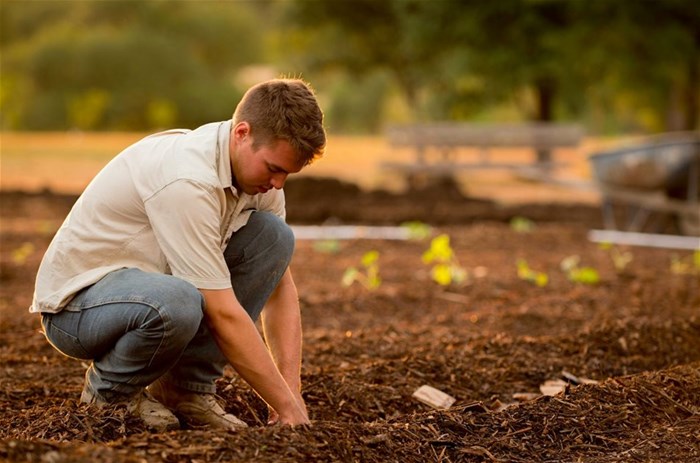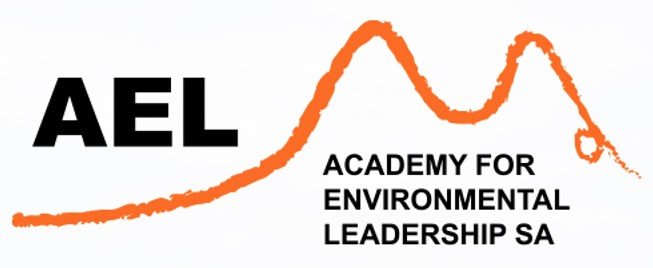Research according to the World Economic Forum's Future of Jobs report shows that environmental, social and governance (ESG) standards will significantly impact the expansion of jobs. This means that companies can no longer only have a financial report in their annual report, but must also add their environmental footprints, what they have done for the environment and their social responsibilities.
Across all industries, environmental stewardship is increasingly seen as a core skill requirement and is given higher priority than what companies used to consider essential. Against this background, all environmental-related jobs and responsibilities are a real value-adding career opportunity.
Qualifying in sustainability and environmental-related roles has never been in such demand as it is now. At the AEL (Academy for Environmental Leadership SA), we provide students with a unique academic year that is focused on developing the future leaders of conservation ecology. Our qualification contributes to building a sustainable future for graduates, their communities, and South Africa. Depending on the student's personal choice, the AEL's qualification has job-readiness and university-readiness as graduate attributes.
Higher certificate in Conservation Ecology (NQF5)
Across the world of work, there has been widespread instability in the last few years. In South Africa, finding a job is in a hyper-competitive arena, especially for the youth (15–24 years old). The workplace is fast-evolving, and we must ensure that qualifications remain relevant in an ever-changing world of work. We must tackle unemployment if we want a stable and sustainable future in this country.
At the onset of the planning for establishing the AEL, one of our prerequisites was to award a qualification that would not contribute to more jobless graduates. Therefore, the higher certificate in Conservation Ecology was positioned for students to start building a career by entering the job market with a qualification higher than Grade 12 or furthering their studies after graduating from the AEL.
During the academic year, our students gain knowledge of specifically focused concepts of biology, ecology, soil science, geography, chemistry, physics, social sciences, and environmental legislation. Conservation Ecology is a multi-disciplinary and integrated field related to protecting and maintaining the environment and dealing with habitat threats. It also focuses on the sustainable utilisation of land, water, and other natural resources.
The academic programme at the AEL comprises of ten modules, totalling 120 credits. The modules are:
- Communication skills: Oral and written communication skills are necessary to effectively convey the message and principles of nature conservation to a diverse public.
- Legislative framework pertaining to the environment: Environmental legislation is the basis for all conservation efforts. In this module, students gain an introductory understanding of South African legislation, with specific reference to environmental matters. This module empowers them to act within the legal boundaries of South Africa.
- Introduction to conservation ecology: The fundamental principles that form the basis of conservation efforts are mastered. Students are introduced to the earth's biodiversity and its value for humankind. They gain an understanding of how conservation ecology addresses the current biodiversity crisis.
- Conservation ecology: Students gain knowledge on how the environment functions on various levels of ecological organisation. This provides the necessary understanding to identify and to prevent the loss of species and to fend off ecosystem malfunction.
- Sustainability: Understanding the concept of sustainability and how it drives conservation practices, e.g. using sustainable veld management as an instrument, is necessary for environmental protection.
- Identification of environmental threats: At AEL, we teach the varied factors that threaten biological diversity and provide methods to identify such threats in the field.
- Dealing with environmental threats: The different strategies that can be used to address environmental threats enable students, as conservationists, to choose the appropriate techniques for ecological rehabilitation projects.
- Data collection and handling: Skills are gained in collecting, sifting, and recording data relevant to nature conservation and compiling basic reports on collected data for record keeping and action.
- Conflict management: Students are introduced to skills to manage conflict regarding environmental issues and in their personal lives.
- Personal development: Identify your strengths, weaknesses, and development areas, understand the importance of character and values in your choices and actions, and become aware of how your thoughts and words influence your life.
More Conservation Ecologists are needed
We are in serious trouble if we don't solve our country's environmental, (e.g. water and waste management) crisis. As Russel Botman (2011) said: "My generation caused the hole in the ozone layer; your generation will have to close it up. My generation started wars; your generation will have to make peace. You will have to have stronger values than we had. You will have to improve the world."
Sustainability and environmentally related roles are notable for all being in the top 40 positions, including three in the top 10 places of work. Some of these places of work for persons with a background in environmental skills include agriculture, mining, aquaculture, renewable energy and conservation, construction companies, utility companies, government agencies and many more.
The AEL's qualification provides an excellent foundation, equipping students with the basic knowledge, skills, critical analyses, work ethics and confidence, which are all essential for further studies towards a diploma or degree. The higher certificate in Conservation Ecology enables you to achieve all your academic aspirations.
Touring through the Richtersveld and its surroundings serves as a capstone experience where almost everything which students have learned comes together in practice. This tour will surely be a highlight of your time at the AEL.
The life skills acquired at the AEL will be invaluable in the next chapter of your life, and the friendships forged will last for a lifetime. Spend a year of your life in nature, learning about the environment whilst realising your true potential and creating a solid plan and career path for your future.
































